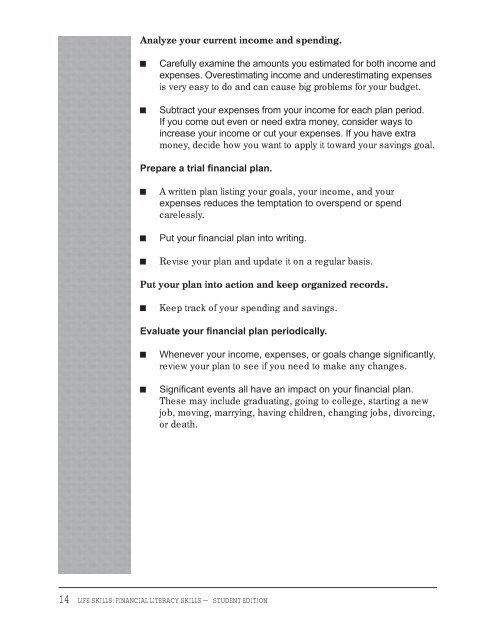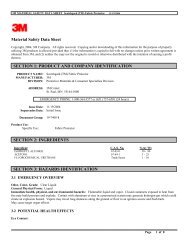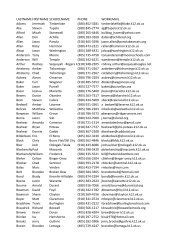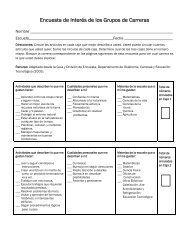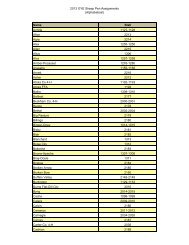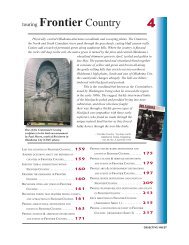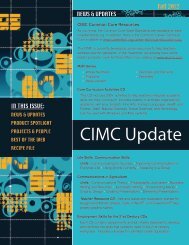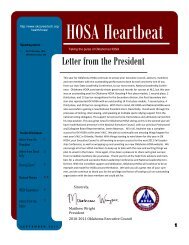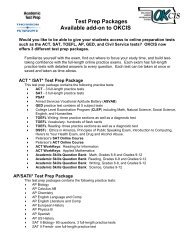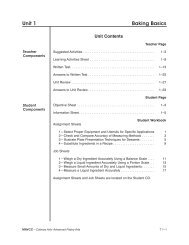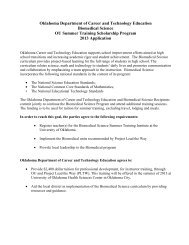Student Workbook (PDF file, 3.46 MB) - Oklahoma Department of ...
Student Workbook (PDF file, 3.46 MB) - Oklahoma Department of ...
Student Workbook (PDF file, 3.46 MB) - Oklahoma Department of ...
You also want an ePaper? Increase the reach of your titles
YUMPU automatically turns print PDFs into web optimized ePapers that Google loves.
Analyze your current income and spending.<br />
Carefully examine the amounts you estimated for both income and<br />
expenses. Overestimating income and underestimating expenses<br />
is very easy to do and can cause big problems for your budget.<br />
Subtract your expenses from your income for each plan period.<br />
If you come out even or need extra money, consider ways to<br />
increase your income or cut your expenses. If you have extra<br />
money, decide how you want to apply it toward your savings goal.<br />
Prepare a trial financial plan.<br />
A written plan listing your goals, your income, and your<br />
expenses reduces the temptation to overspend or spend<br />
carelessly.<br />
Put your fi nancial plan into writing.<br />
Revise your plan and update it on a regular basis.<br />
Put your plan into action and keep organized records.<br />
Keep track <strong>of</strong> your spending and savings.<br />
Evaluate your financial plan periodically.<br />
Whenever your income, expenses, or goals change signifi cantly,<br />
review your plan to see if you need to make any changes.<br />
Signifi cant events all have an impact on your fi nancial plan.<br />
These may include graduating, going to college, starting a new<br />
job, moving, marrying, having children, changing jobs, divorcing,<br />
or death.<br />
14 LIFE SKILLS: FINANCIAL LITERACY SKILLS — STUDENT EDITION


